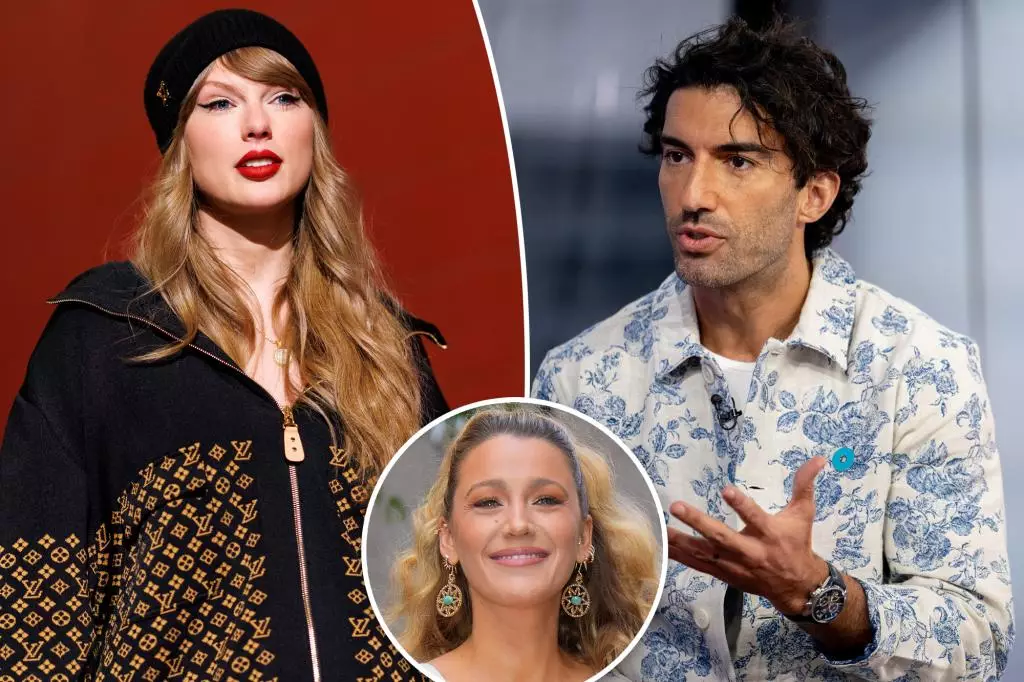In today’s fast-paced world of celebrity news, few stories capture public interest like the ongoing legal tussles that involve famous personalities. One such case, involving director Justin Baldoni, actress Blake Lively, and pop music sensation Taylor Swift, has recently taken a sharp turn. Initially, Baldoni had aimed to leverage a subpoena against Swift in a defamation and extortion lawsuit linked to his narrative of control in the movie adaptation of Colleen Hoover’s popular novel, “It Ends With Us.” However, as tensions escalated, Baldoni’s legal team opted to drop the subpoena.
This decision raises intriguing questions about the motivations behind such legal maneuvers and the nature of celebrity culture. For one, it exposes the often tumultuous crossover between personal relationships and professional endeavors, particularly within an industry that thrives on public personas. It also challenges the integrity of the judicial process, where allegations can sway narratives long before any court ruling is made.
The Role of Public Perception and Ethics in Celebrity Culture
The ethics of targeting an individual like Swift for legal ambiguity is deeply troubling. The entertainment industry operates under a microscope, where even a minor claim can create ripples, affecting reputations and careers. Swift, who has built her brand on empowerment, resilience, and advocacy for artists, faced allegations that painted her as a political pawn in Lively’s disputes. This evokes the question: What kind of society do we live in that allows such tactics to surface?
Swift’s representatives were quick to rebut any claims of her involvement, emphasizing her disconnection from the project at the heart of the controversy. This public clarion serves not only to protect Swift’s credibility but underscores a critical tenet of ethics: individuals should not be drawn into conflicts or controversies that they are neither involved in nor responsible for. The emphasis on fair legal processes and the protection of third parties is crucial.
The Undercurrents of Gender and Power Dynamics
Compounding this issue are the nuances of gender dynamics at play. In a statement released by Lively’s representative, the characterization of the subpoenas as “harassing” positions Swift as a victim of a broader scheme—one that seeks to undermine women’s rights and dignity within a legal framework. The assertion that powerful male figures can manipulate female narratives speaks volumes about persistent biases in the legal arena and celebrity culture.
Moreover, Lively’s purported defense of Swift, positioning her as a source of inspiration for millions, illustrates how role models in the public eye must engage with complex scrutiny from all angles. This intersection of public admiration and personal entanglement raises valid concerns regarding how women are depicted and treated in high-stakes legal disputes.
The Implications of Withdrawing a Subpoena
Baldoni’s decision to withdraw the subpoena marks a considerable shift, suggesting a recognition of the potential backlash against targeting Swift. The reason provided—that information was “voluntarily received”—does little to placate the curiosity surrounding the original motivations for including her in such a fraught narrative. No doubt, the attorneys involved weighed the costs of pursuing a case that risked dismantling reputations versus the tangible benefits of uncovering evidence. In this instance, the move to withdraw may serve as a testament to a learned lesson in tact and prudence.
This retraction also opens the door for discussions about the abuse of the legal process in the entertainment industry. When celebrities can weaponize subpoenas against one another, wrecking the integrity of third parties and the court system, it begs the question of what structural changes could be made to safeguard against such practices in the future.
A Cultural Reflection
The unfolding details surrounding Baldoni, Lively, and Swift reflect more than mere legal disputes; they serve as a lens through which we can examine the intertwined narratives of personal grievances, celebrity culture, and the evolving conversation around women’s rights and representation. As we continue to scrutinize these cases, it’s essential to advocate for fair representation and ethical accountability while urging caution in how the legal system is wielded as a tool of power. The stakes are high in a town built on stories, and every narrative deserves explicit attention and ethical consideration.

